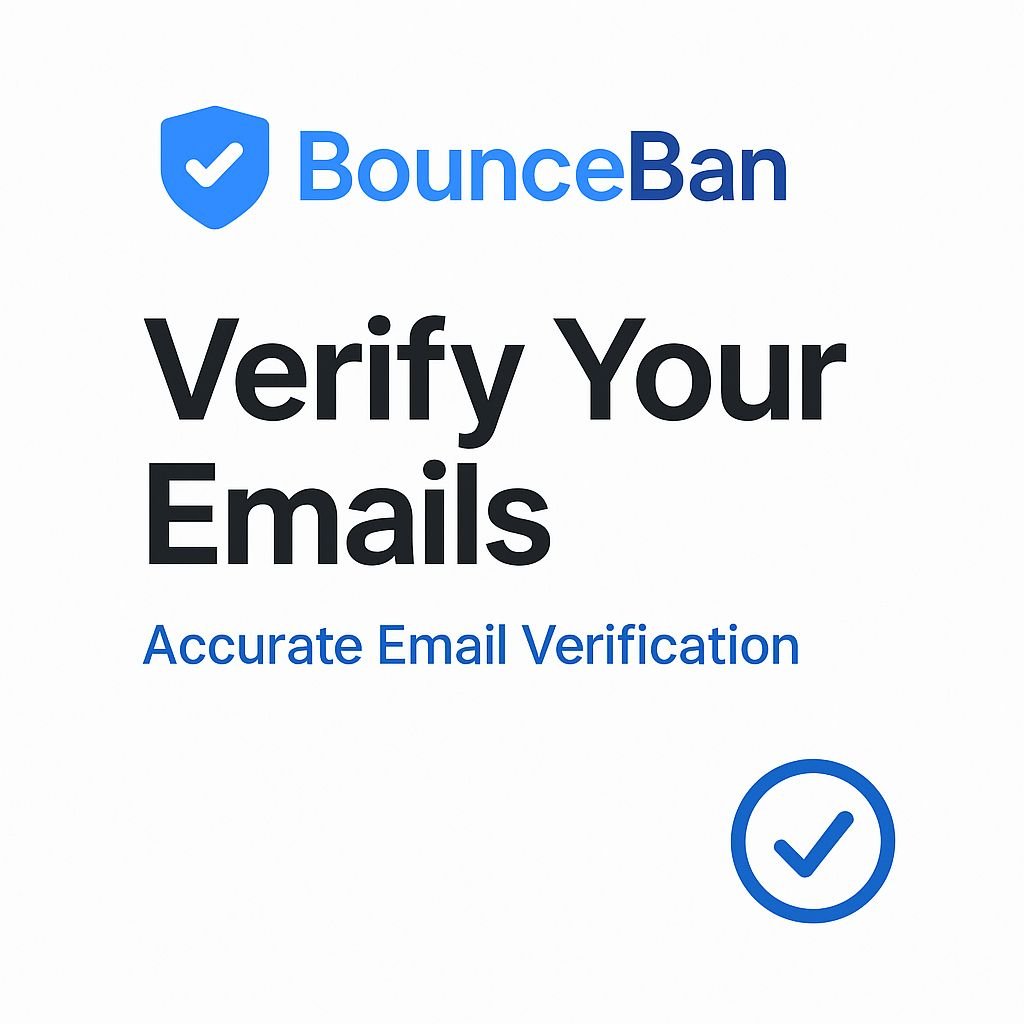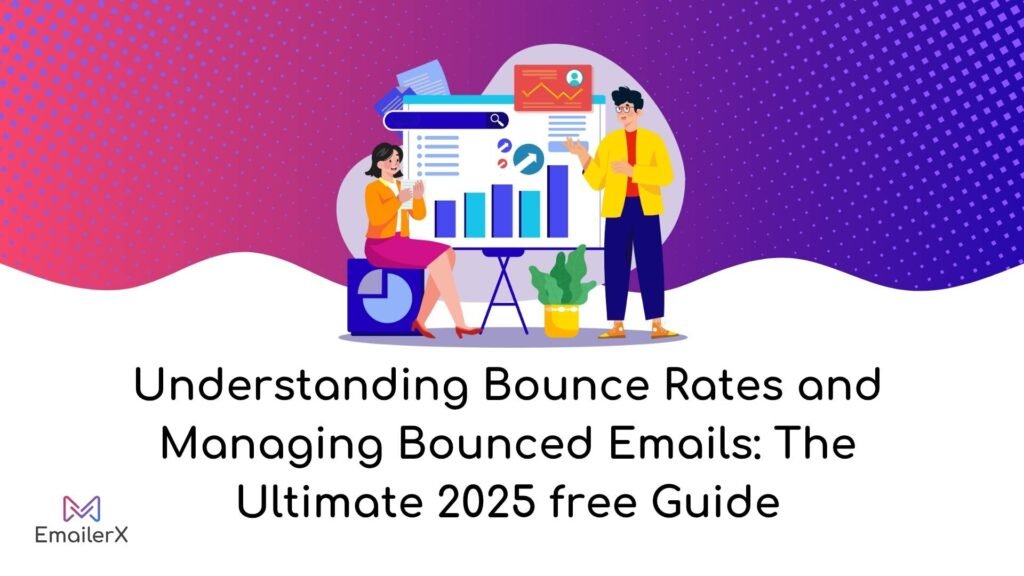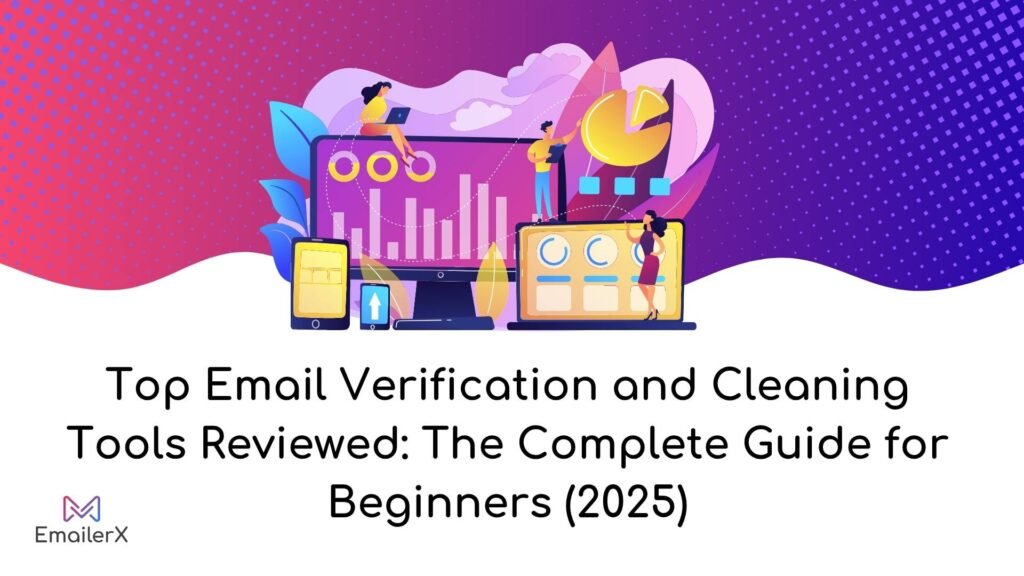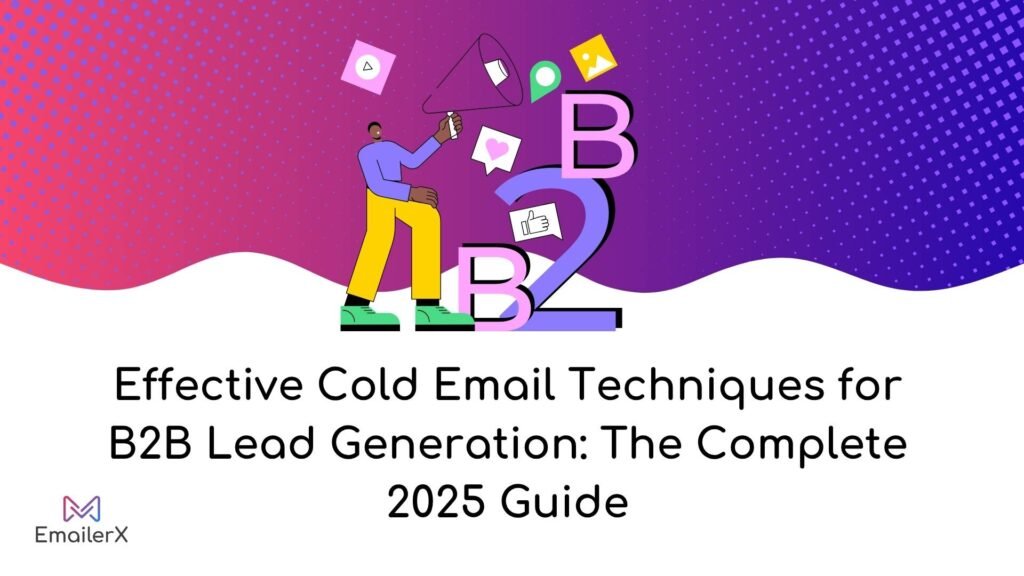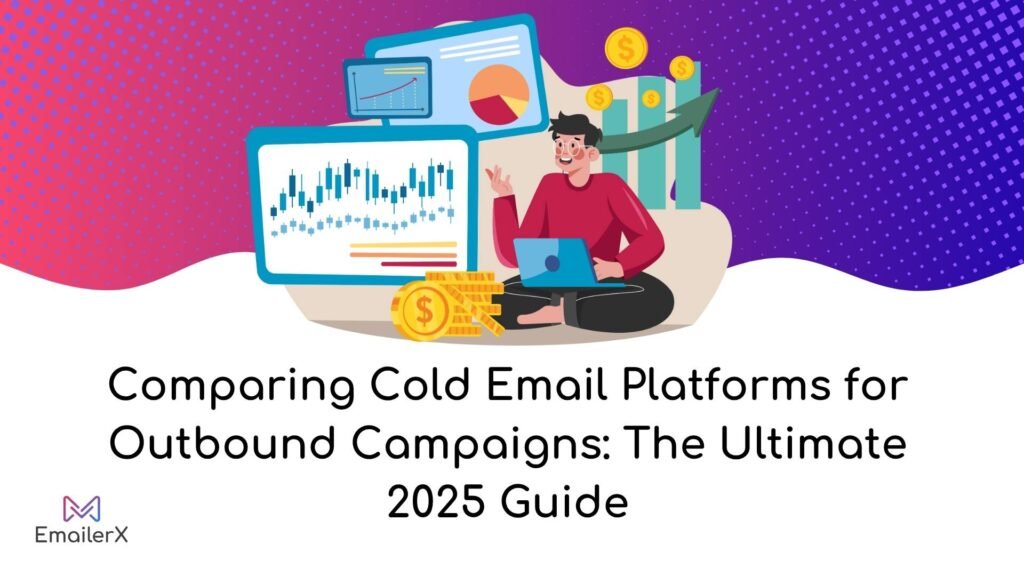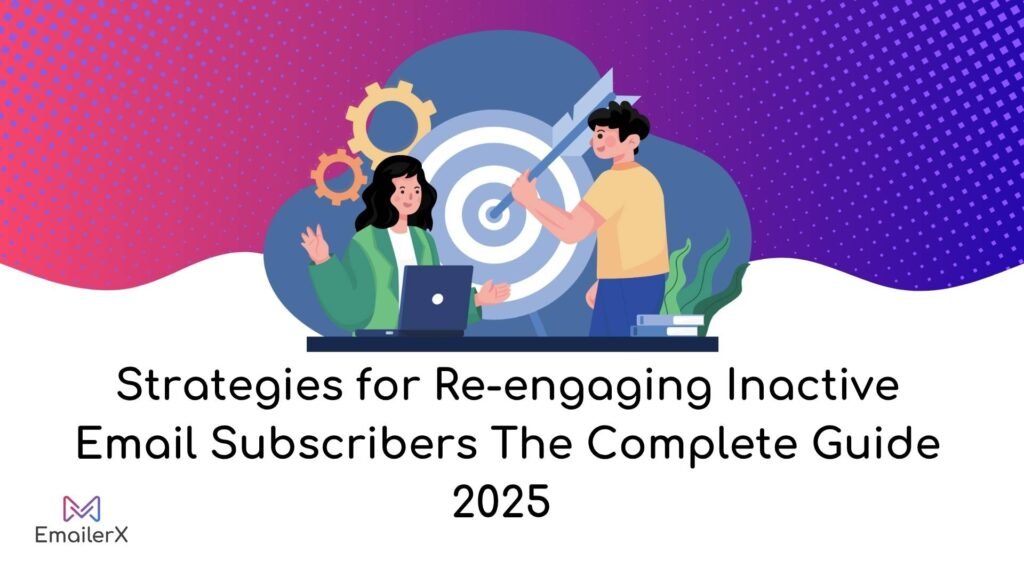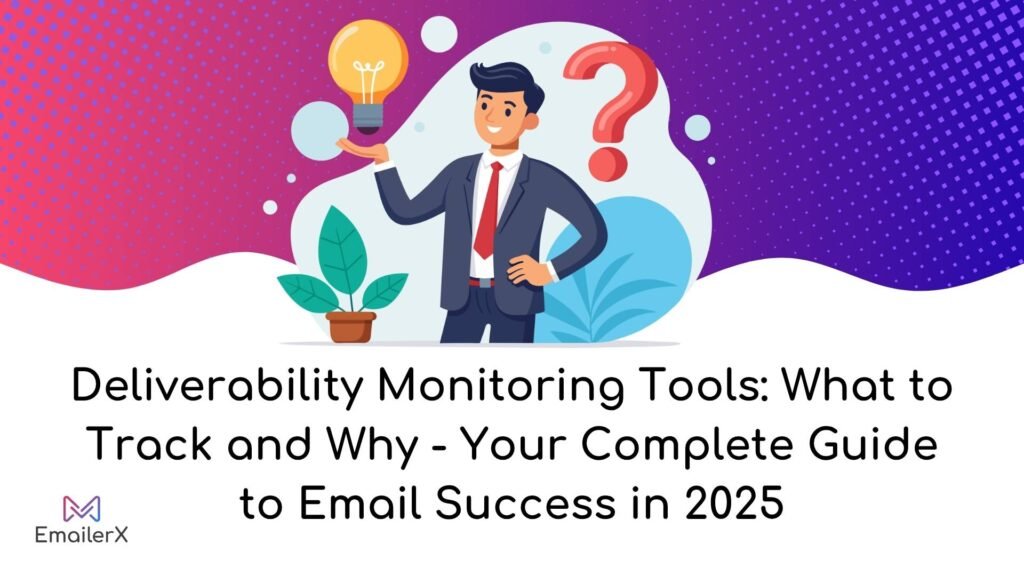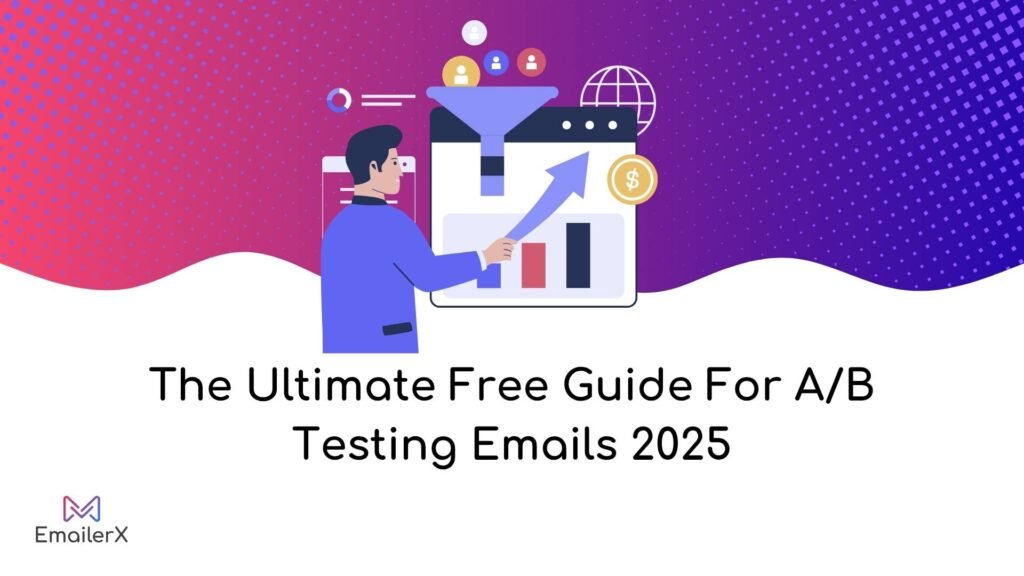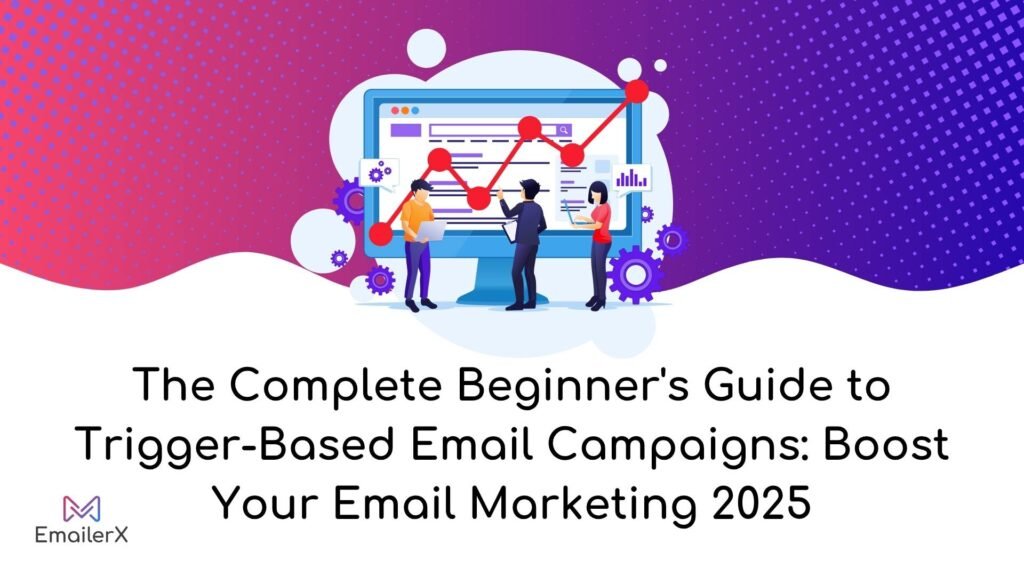Table of Contents
ToggleIntroduction: The Power of Email Marketing in Today’s Digital Landscape
Email marketing remains the backbone of digital communication strategies, delivering an impressive $36 for every $1 spent on average. While newer channels emerge constantly, email continues to outperform them all in ROI and direct connection with your audience.
As someone who’s spent over two decades optimizing email campaigns for businesses across industries, I can confidently say that mastering email marketing fundamentals will transform your business growth trajectory.
In this comprehensive guide, I’ll walk you through everything you need to know to build a solid email marketing foundation – from understanding core concepts to implementing your first campaign.
Whether you’re a small business owner, marketing professional, or simply curious about leveraging email to grow your brand, this resource will equip you with actionable knowledge to get started right.
Let’s dive into the world of email marketing and unlock its potential for your business.
What Is Email Marketing?
Email marketing is a strategic digital marketing approach that involves sending targeted messages directly to a group of people via email. At its core, email marketing is about building relationships with potential and existing customers through valuable content, personalized communication, and measured engagement.
Unlike other marketing channels, email provides a direct line of communication that you own and control. This direct relationship is why email marketing consistently outperforms social media, paid advertising, and other digital channels in terms of conversion rates and return on investment.
The key difference between effective email marketing and spam lies in three critical factors:
- Permission-based communication: Recipients have explicitly opted in to receive your messages
- Value exchange: Every email delivers something useful to the recipient
- Relevance: Messages are tailored to match recipient interests and behaviors
As an email marketing expert with 13+ years in the field, I’ve witnessed how this channel has evolved from simple text newsletters to sophisticated, automated customer journeys. Yet its fundamental purpose remains unchanged: connecting businesses directly with their audience through relevant, timely, and valuable communication.
Why Email Marketing Matters in 2025
Despite predictions of its demise, email marketing continues to thrive as one of the most effective marketing channels available. Here’s why email marketing remains crucial in 2025:
Unmatched ROI and Performance
- Superior ROI: Email marketing generates $36 for every $1 spent on average, outperforming all other digital marketing channels
- High engagement: Well-crafted email campaigns achieve open rates of 15-25% and click-through rates of 2.5-5% across industries
- Direct conversions: Email drives more direct purchases than social media and display advertising combined
You Own the Channel
Unlike social platforms where algorithm changes can devastate your reach overnight:
- No algorithmic barriers: Your messages reach your audience directly without platform interference
- Data ownership: You maintain control of your contact data and relationship history
- Platform independence: Your email marketing assets remain yours regardless of changes to third-party platforms
Personalization and Segmentation Capabilities
Modern email marketing allows for unprecedented personalization:
- Targeted messaging: Deliver different content to different audience segments
- Behavioral triggers: Send emails based on specific user actions or inactions
- Dynamic content: Customize email sections for each recipient automatically
Measurable and Optimizable
Email provides clear metrics that help you continuously improve:
- Real-time feedback: See exactly how recipients interact with your messages
- A/B testing: Scientifically test different approaches to optimize performance
- Conversion tracking: Connect email engagement directly to sales and revenue
Integration with Other Channels
Email serves as the hub of omnichannel marketing strategies:
- Cross-channel coordination: Email complements and enhances social media, content marketing, and paid advertising
- Customer journey integration: Bridges gaps between different touchpoints in the buyer’s journey
- Retargeting capabilities: Recapture attention from visitors who didn’t convert
My one decades in SEO and email marketing have proven repeatedly that businesses that master email marketing build more resilient revenue streams and stronger customer relationships than those relying solely on other channels.
Types of Email Marketing Campaigns
Understanding the different types of email campaigns will help you create a comprehensive strategy that addresses various business objectives. Here are the primary types of email marketing campaigns you should consider incorporating:
Welcome Emails
Welcome emails set the tone for your relationship with new subscribers. They typically:
- Introduce your brand and value proposition
- Set expectations for email frequency and content
- Provide immediate value (discount, useful content, etc.)
- Guide new subscribers to next steps
Pro tip: Welcome emails have 4x the open rate and 5x the click-through rate of standard marketing emails. Make them count!
Promotional Emails
These emails drive direct sales and revenue through:
- Limited-time offers and discounts
- New product announcements
- Special event invitations
- Holiday and seasonal promotions
Best practice: Maintain a balanced ratio of promotional to value-based content (60-40 split) to avoid subscriber fatigue.
Newsletters
Regular newsletters keep your audience engaged and informed with:
- Industry news and updates
- Valuable tips and educational content
- Company announcements and milestones
- Curated content relevant to your audience
Key insight: Newsletters establish your authority and keep your brand top-of-mind even when recipients aren’t actively buying.
Transactional Emails
These automated emails are triggered by specific user actions:
- Purchase confirmations and receipts
- Shipping notifications
- Account updates
- Password resets
Important note: Transactional emails have 8x the open rates of marketing emails and represent massive untapped marketing potential when optimized correctly.
Nurture/Drip Campaigns
Drip campaigns deliver a sequence of pre-planned emails to:
- Educate prospects about your solutions
- Build trust over time
- Move leads through your sales funnel
- Onboard new customers systematically
Strategic advantage: These automated sequences ensure consistent follow-up without requiring manual intervention.
Re-engagement Campaigns
These targeted emails aim to reactivate dormant subscribers by:
- Acknowledging their absence
- Providing special “win-back” incentives
- Confirming continued interest
- Offering options for changing email preferences
Data point: A successful re-engagement campaign can recover 3-5% of otherwise lost customers.
Event-Based Emails
Triggered by significant dates or milestones:
- Birthday and anniversary emails
- Abandoned cart reminders
- Service renewal notices
- Milestone celebrations (customer anniversaries, etc.)
Performance insight: Birthday emails generate 342% higher revenue per email than promotional emails.
From my 13+ years of email marketing experience, I’ve found that the most successful email programs incorporate multiple campaign types into a cohesive strategy that addresses the entire customer lifecycle.
Essential Components of Effective Email Marketing
Creating effective email marketing campaigns requires attention to several key components. Each element contributes to the overall success of your email marketing efforts:
Strategic Planning and Goals
Before creating any email campaign, you need:
- Clear objectives: Define what each campaign should accomplish (sales, engagement, education)
- Audience targeting: Identify which segments should receive which messages
- Content calendar: Plan email frequency and themes in advance
- Success metrics: Determine how you’ll measure campaign performance
Compelling Subject Lines
Subject lines determine whether your emails get opened:
- Concise and clear: Keep subject lines under 60 characters
- Value-focused: Communicate what’s inside and why it matters
- Personalization: Include recipient’s name or relevant data when appropriate
- A/B testing: Regularly test different approaches to optimize open rates
Engaging Email Content
Content that delivers on the subject line’s promise:
- Scannable format: Use short paragraphs, bullets, and subheadings
- Clear hierarchy: Most important information first
- Value-driven: Every email should provide something useful
- Focused message: Stick to one primary call-to-action per email
Responsive Email Design
Ensure your emails look great on all devices:
- Mobile-first design: 60% of email opens occur on mobile devices
- Simple layouts: Single-column designs work best across devices
- Adequate white space: Prevents crowded, difficult-to-read emails
- Web-safe fonts: Ensure text displays properly across email clients
Compelling Calls-to-Action
Guide recipients toward desired actions:
- Clear buttons: Make CTAs stand out visually
- Action-oriented text: Use strong verbs that drive action
- Strategic placement: Position primary CTA above the fold
- Value-based language: Focus on what the user gets, not what they give
Segmentation and Personalization
Tailor messages to specific audience groups:
- Behavioral segmentation: Target based on past interactions
- Demographic segmentation: Customize by relevant demographic factors
- Dynamic content blocks: Change specific sections based on recipient data
- Personalized recommendations: Suggest products or content based on interests
Proper Email Infrastructure
Technical elements that ensure deliverability:
- Authentication protocols: Implement SPF, DKIM, and DMARC
- Clean HTML code: Ensure emails render properly across clients
- Optimized sending infrastructure: Balance between sending speed and deliverability
- Feedback loops: Monitor and respond to bounces and complaints
Building Your Email List: Best Practices
Your email marketing success begins with your list. A quality email list of engaged subscribers who actually want to hear from you will outperform a large list of uninterested contacts every time. Here’s how to build a valuable email list that drives results:
Ethical List Building Strategies
Focus on permission-based methods that attract genuinely interested subscribers:
- Opt-in forms: Place strategic signup forms on your website’s high-traffic pages
- Lead magnets: Offer valuable content in exchange for email addresses (guides, templates, tools)
- Landing pages: Create dedicated pages focused solely on list signup
- Social media conversion: Direct social followers to subscription opportunities
Avoid at all costs: Purchasing email lists. This practice leads to poor performance, spam complaints, and potential legal issues.
Effective Signup Forms
Design forms that convert visitors into subscribers:
- Minimal fields: Ask only for essential information (email address and perhaps name)
- Clear value proposition: Explain exactly what subscribers will receive
- Specific frequency: Set expectations about how often you’ll email
- Privacy assurance: Include a clear link to your privacy policy
Double Opt-in Implementation
Consider using double opt-in for superior list quality:
- Confirmation requirement: Subscribers must verify their email address
- List hygiene: Prevents invalid emails and spam traps from joining your list
- Engagement signal: Indicates higher subscriber interest and commitment
- Compliance advantage: Provides clear proof of consent for regulatory purposes
List Segmentation From the Start
Begin segmenting subscribers immediately:
- Interest-based segmentation: Ask new subscribers about their preferences
- Source tracking: Note where subscribers joined your list
- Behavioral segments: Track early interactions to inform future targeting
- Customer status: Distinguish between prospects and existing customers
List Hygiene and Maintenance
Regularly clean your list to maintain performance:
- Bounce management: Remove hard bounces promptly
- Engagement filtering: Segment or remove chronically unengaged subscribers
- Re-permission campaigns: Periodically confirm continued interest
- Update opportunities: Make it easy for subscribers to modify their preferences
List Growth Acceleration Techniques
Amplify your list growth through strategic approaches:
- Referral programs: Encourage subscribers to share with friends
- Strategic partnerships: Cross-promote with complementary businesses
- Offline collection: Gather emails at physical locations or events
- Content upgrades: Offer enhanced content within your most popular resources
Retention Strategies
Focus on keeping subscribers engaged:
- Welcome sequences: Properly onboard new subscribers
- Consistent value delivery: Ensure every email provides something useful
- Preference management: Allow subscribers to control frequency and content
- Re-engagement campaigns: Attempt to reactivate dormant subscribers before removal
Through my decades of experience in email marketing, I’ve observed that businesses focusing on list quality over quantity consistently achieve higher engagement, deliverability, and conversion rates. A smaller list of engaged subscribers will always outperform a bloated list of uninterested contacts.
Email Marketing Metrics That Matter
To manage and improve your email marketing effectively, you need to track the right metrics. Here are the essential email marketing metrics you should monitor, along with insights on how to interpret and act on them:
1. Open Rate
What it measures: The percentage of recipients who open your email.
Industry benchmarks: Typically ranges from 15-25% across industries.
How to improve it:
- Test and optimize subject lines
- Improve sender name recognition
- Send at optimal times based on audience behavior
- Segment your list for greater relevance
Expert insight: While iOS privacy changes have impacted the accuracy of open rates, they still provide valuable comparative data for your campaigns.
2. Click-Through Rate (CTR)
What it measures: The percentage of recipients who click on a link in your email.
Industry benchmarks: Average CTR ranges from 2.5-5% across industries.
How to improve it:
- Create compelling, clear calls-to-action
- Ensure content delivers on subject line promises
- Use design to guide attention to clickable elements
- Test button colors, placement, and copy
Expert insight: CTR is a more reliable indicator of engagement than open rate and directly correlates with campaign effectiveness.
3. Conversion Rate
What it measures: The percentage of recipients who complete your desired action after clicking (purchase, signup, download, etc.).
Industry benchmarks: Typically 1-5% depending on industry and campaign goal.
How to improve it:
- Ensure landing page messaging matches email content
- Optimize post-click experience for simplicity
- Test different offers and value propositions
- Create dedicated landing pages for email campaigns
Expert insight: This is the ultimate performance metric that ties directly to ROI.
4. Bounce Rate
What it measures: The percentage of emails that couldn’t be delivered.
Types to track:
- Soft bounces: Temporary delivery issues (full inbox, server down)
- Hard bounces: Permanent delivery failures (invalid email, blocked domains)
Healthy benchmark: Keep total bounce rate under 2%.
Expert insight: Consistently high bounce rates can damage your sender reputation and affect deliverability of future campaigns.
5. List Growth Rate
What it measures: The rate at which your email list is growing, accounting for new subscribers and unsubscribes.
Formula: (New subscribers – Unsubscribes) ÷ Total subscribers × 100
Healthy benchmark: Aim for positive growth of at least 5-10% quarterly.
Expert insight: Sustainable list growth is essential for long-term email marketing success and indicates healthy audience acquisition.
6. Email Sharing/Forwarding Rate
What it measures: The percentage of recipients who share your content via “forward to a friend” or social sharing buttons.
Why it matters: Indicates highly valuable content and helps grow your list organically.
Expert insight: Content with high sharing rates should be analyzed and replicated as it represents your most valuable messaging.
7. Revenue Per Email (RPE)
What it measures: The average revenue generated by each email sent.
Formula: Total revenue generated ÷ Number of emails sent
How to leverage it:
- Compare RPE across different campaign types
- Use to determine optimal sending frequency
- Calculate to justify email marketing investments
Expert insight: This metric directly ties your email marketing to business impact and helps prioritize efforts.
8. Spam Complaint Rate
What it measures: The percentage of recipients who mark your email as spam.
Critical threshold: Keep under 0.1% (1 complaint per 1,000 emails) to protect deliverability.
Expert insight: Even a small increase in spam complaints can severely damage your sending reputation and deliverability.
9. Return on Investment (ROI)
What it measures: The overall return on your email marketing investment.
Formula: (Revenue attributable to email – Cost of email marketing) ÷ Cost of email marketing × 100
Industry benchmark: Email marketing typically returns $36 for every $1 spent.
Expert insight: Track this comprehensively by including all costs (platform, design, copywriting, management time).
In my 13+ years leading email marketing strategies, I’ve found that businesses that regularly analyze these metrics and make data-driven adjustments consistently outperform competitors who take a “set and forget” approach to their campaigns.
Email Marketing Tools and Platforms
Selecting the right email marketing platform is crucial for your success. Here’s a comprehensive overview of the types of tools available, along with recommendations based on business size and needs:
Types of Email Marketing Platforms
Email Service Providers (ESPs) Full-featured platforms that handle the core email marketing functions:
- List management and segmentation
- Email creation and template design
- Scheduling and sending
- Performance analytics
Marketing Automation Platforms Advanced systems that extend beyond email to:
- Cross-channel marketing automation
- Customer journey mapping
- Lead scoring and nurturing
- Advanced personalization and targeting
Transactional Email Services Specialized services focused on:
- High-volume, time-sensitive sending
- API-based integration with your applications
- Delivery of receipt, account, and service notifications
- Enhanced deliverability for critical communications
Deliverability Tools Supplementary solutions that help ensure emails reach inboxes:
- Email authentication implementation
- Inbox placement testing
- Sender reputation monitoring
- Blacklist monitoring and remediation
Platform Recommendations by Business Size
For Small Businesses and Startups
- Mailchimp: User-friendly with strong template options
- Constant Contact: Excellent customer support and ease of use
- Sendinblue: Affordable with solid automation features
- Kit: Ideal for content creators and bloggers
For Mid-Size Companies
- ActiveCampaign: Powerful automation at mid-market pricing
- Drip: E-commerce focused with revenue attribution
- GetResponse: Well-rounded features with webinar integration
- Klaviyo: Deep e-commerce integration and segmentation
For Enterprise Organizations
- Salesforce Marketing Cloud: Comprehensive marketing suite with deep CRM integration
- Adobe Marketo: B2B focused with advanced lead management
- HubSpot: All-in-one marketing platform with robust CRM
- Braze: Customer engagement platform with cross-channel capabilities
Key Features to Consider When Choosing a Platform
Usability and Interface
- Intuitive drag-and-drop editor
- Template library and customization options
- Learning curve appropriate for your team’s expertise
List Management Capabilities
- Advanced segmentation options
- Automated list cleaning and maintenance
- Custom field options and tagging system
Automation Capabilities
- Visual workflow builders
- Behavioral trigger options
- Conditional logic functionality
Personalization Features
- Dynamic content blocks
- Personalization beyond basic merge tags
- Recommendation engines (for e-commerce)
Analytics and Reporting
- Comprehensive dashboard
- Custom report creation
- Revenue attribution tracking
Deliverability Features
- Built-in authentication setup
- Deliverability monitoring tools
- Dedicated IP options (for higher volume senders)
Integration Ecosystem
- Native integrations with your existing tech stack
- API access and flexibility
- Integration with your CRM system
Pricing Structure
- Subscriber-based vs. send-based pricing
- Feature access at different tiers
- Hidden costs (overage charges, add-ons)
Compliance Support
- Built-in GDPR and CCPA compliance tools
- Unsubscribe management
- Data storage and privacy controls
Scalability
- Growth path as your needs evolve
- Performance with larger list sizes
- Access to advanced features as you grow
Implementation Best Practices
When implementing your chosen platform:
- Start with proper setup: Configure authentication protocols (SPF, DKIM, DMARC) immediately
- Import lists carefully: Segment during import and consider re-permission campaigns for older contacts
- Create template system: Develop modular templates that maintain brand consistency
- Establish naming conventions: Create logical systems for campaigns, segments, and automation
- Document workflows: Map out standard processes for campaign creation and approval
From my experience implementing dozens of email marketing systems over 20+ years, I’ve learned that the right platform choice depends not just on current needs but on where your business is heading in the next 2-3 years. Choose a system that can grow with you but doesn’t overwhelm your team with unnecessary complexity.
Email Marketing Compliance and Legal Considerations
Navigating email marketing regulations is essential for maintaining your sender reputation and avoiding potentially significant legal penalties. Here’s what you need to know about the major laws and best practices for compliance:
Major Email Marketing Laws
CAN-SPAM Act (United States) Key requirements:
- Don’t use false or misleading header information
- Don’t use deceptive subject lines
- Identify the message as an advertisement
- Include your physical postal address
- Provide a clear way to opt out
- Honor opt-out requests promptly
- Monitor what others do on your behalf
GDPR (European Union) Key requirements:
- Obtain explicit consent before sending marketing emails
- Document when and how consent was obtained
- Provide detailed information about how data will be used
- Honor right to access, correction, and deletion of personal data
- Report certain types of data breaches within 72 hours
- Only collect necessary data (data minimization)
- Provide mechanism for withdrawing consent
CASL (Canada) Key requirements:
- Obtain express or implied consent before sending
- Clearly identify sender and provide contact information
- Include functional unsubscribe mechanism
- Honor unsubscribe requests within 10 business days
- Maintain detailed records of consent
Other Regional Regulations
- UK PECR: Similar to GDPR but specific to electronic communications
- Australia’s Spam Act: Requires consent, identification, and unsubscribe option
- Brazil’s LGPD: Similar to GDPR with consent requirements for email marketing
Best Practices for Email Compliance
Consent Management
- Use clear, specific language when requesting consent
- Avoid pre-checked boxes or bundled consent
- Keep comprehensive records of when, how, and what consent was given
- Implement double opt-in to verify email addresses and document consent
Unsubscribe Mechanism
- Make unsubscribe links clearly visible in every email
- Ensure one-click unsubscribe processes whenever possible
- Honor unsubscribe requests immediately (not just within legal timeframes)
- Offer preference centers as alternatives to complete unsubscription
Sender Identification
- Use consistent, recognizable sender names
- Include valid physical address in every email
- Clearly identify your company in both “from” field and email content
- Use authenticated sending domains (SPF, DKIM, DMARC)
Data Security and Privacy
- Encrypt stored email addresses and associated personal data
- Limit access to subscriber data within your organization
- Establish data retention policies and schedules
- Create processes for handling data subject requests
Documentation and Record-keeping
- Maintain records of consent for each subscriber
- Document opt-out requests and their fulfillment
- Keep records of your email content and sending practices
- Establish audit trails for compliance verification
Practical Implementation Steps
- Audit your current practices: Review your signup forms, consent language, and unsubscribe processes
- Create a compliance checklist: Develop standard procedures for campaign approval
- Train your team: Ensure everyone involved understands compliance requirements
- Regular compliance reviews: Schedule periodic audits of your email marketing practices
- Stay updated: Monitor changes in regulations that may affect your operations
Special Considerations for Global Audiences
If your email list includes subscribers from multiple countries:
- Apply the strictest relevant regulations to your entire list
- Consider geographically segmented lists with region-specific compliance
- Include country field in signup forms to enable appropriate compliance measures
- Consult with legal experts familiar with international digital marketing laws
Over my 25 years in email marketing, I’ve seen numerous businesses face significant penalties for compliance violations. The most successful approach is to view compliance not as a burden but as an opportunity to build trust with your audience through transparent and respectful communication practices.
Getting Started: Your First Email Campaign
Creating your first email marketing campaign can seem daunting, but breaking it down into manageable steps will help you launch successfully. Here’s a step-by-step guide to implementing your first email campaign:
Step 1: Define Your Campaign Goal
Start by establishing a clear objective:
- Are you welcoming new subscribers?
- Promoting a specific product or service?
- Announcing important news?
- Educating your audience?
Pro tip: Focus on a single, measurable goal for your first campaign rather than trying to accomplish multiple objectives.
Step 2: Understand Your Audience
Before writing a single word:
- Review available subscriber data
- Create basic audience personas
- Consider their likely questions and concerns
- Identify what value they’re seeking from you
Expert insight: Even basic segmentation (new vs. existing customers, for example) can significantly improve your first campaign’s performance.
Step 3: Choose the Right Campaign Type
Select a campaign format that matches your goal:
- Welcome email: For new subscribers
- Promotional campaign: For sales and offers
- Newsletter: For general updates and value-driven content
- Announcement: For important news or changes
Step 4: Create Compelling Content
Develop content that resonates with your audience:
- Subject line: Clear, enticing, and under 60 characters
- Preheader text: Supplement your subject line with additional context
- Email body: Scannable, benefit-focused content with clear hierarchy
- Call-to-action: Unmistakable next step for recipients
Content framework:
- Address the recipient’s need or pain point
- Present your solution or offer
- Back it up with evidence or social proof
- Make a clear call to action
- Remove barriers to taking that action
Step 5: Design Your Email
Create a professional, branded email design:
- Use a responsive template that works on all devices
- Keep your design clean and focused
- Maintain consistent branding with your website
- Ensure important content appears above the fold
- Use images thoughtfully to support (not replace) your message
Design principle: Simplicity almost always outperforms complexity in email design, especially for your first campaigns.
Step 6: Test Before Sending
Conduct thorough testing before launching:
- Send test emails to yourself and colleagues
- Check rendering across multiple email clients and devices
- Verify that all links work correctly
- Proofread for spelling and grammatical errors
- Test personalization tags with sample data
Checklist item: Always click every link in your test emails to confirm proper functionality.
Step 7: Schedule for Optimal Timing
Choose the right time to reach your audience:
- Consider your audience’s typical schedule and time zone
- Review industry benchmarks for optimal sending times
- Avoid high-volume email days (like Monday mornings)
- Schedule for consistency if planning a recurring campaign
Data point: Tuesday, Wednesday, and Thursday generally show higher engagement rates than other days of the week.
Step 8: Monitor and Analyze Results
Once your campaign is sent, track key metrics:
- Open rate: Measure subject line effectiveness
- Click-through rate: Gauge content relevance and CTA strength
- Conversion rate: Track completion of your campaign goal
- Unsubscribe rate: Monitor audience satisfaction
- Bounces: Identify potential list quality issues
Analysis framework: Compare your results to industry benchmarks and note at least three insights to apply to your next campaign.
Step 9: Document Learnings
Create a simple campaign recap:
- What worked well?
- What could be improved?
- What surprised you about the results?
- What will you do differently next time?
Knowledge management: Start a campaign results spreadsheet to track performance over time and identify trends.
Step 10: Plan Your Next Campaign
Based on your results, begin planning your follow-up:
- How can you build on successful elements?
- What new segment might respond to a similar message?
- What natural next step makes sense for engaged recipients?
From my extensive experience launching thousands of email campaigns, I can tell you that your first campaign won’t be perfect and that’s okay. Each campaign provides valuable data to improve the next one. The most important step is to begin the cycle of sending, analyzing, and optimizing.
Common Email Marketing Mistakes to Avoid
Even experienced marketers can fall into common email marketing traps. Here are the most frequent mistakes I’ve observed over my 25-year career in email marketing, along with practical solutions to avoid them:
Strategic Mistakes
Focusing on List Size Over Quality
- The problem: Prioritizing subscriber numbers over engagement and relevance
- The impact: Poor performance metrics, deliverability issues, and wasted resources
- The solution: Focus on attracting and retaining engaged subscribers who match your ideal customer profile
Inconsistent Sending Frequency
- The problem: Erratic sending patterns (e.g., nothing for weeks, then multiple emails in days)
- The impact: Subscriber confusion, higher unsubscribe rates, and poor engagement
- The solution: Establish and maintain a consistent sending schedule that aligns with subscriber expectations
Neglecting Mobile Optimization
- The problem: Designing emails primarily for desktop viewing
- The impact: Poor user experience for 60%+ of recipients who open on mobile devices
- The solution: Use responsive design templates and test all campaigns on multiple mobile devices
Content and Messaging Mistakes
Unclear Value Proposition
- The problem: Failing to clearly communicate what’s in it for the recipient
- The impact: Low open and click rates as subscribers don’t see relevance
- The solution: Lead with recipient benefits and make value clear in subject lines and opening paragraphs
Too Many Competing Calls-to-Action
- The problem: Cramming multiple CTAs into a single email
- The impact: Decision paralysis leading to no action at all
- The solution: Focus each email on one primary goal with a clear, prominent CTA
Excessive Self-Promotion
- The problem: Talking only about your company/products without addressing audience needs
- The impact: Subscriber fatigue and disengagement
- The solution: Follow the 80/20 rule 80% valuable content, 20% promotion
Generic, Non-Personalized Content
- The problem: Sending identical messages to all subscribers
- The impact: Missed opportunities for relevance and connection
- The solution: Implement basic personalization and segmentation based on available data
Technical and Deliverability Mistakes
Neglecting Authentication Protocols
- The problem: Failing to implement SPF, DKIM, and DMARC
- The impact: Decreased deliverability and increased spam filtering
- The solution: Properly set up all authentication protocols with your IT team or ESP
Poor List Hygiene
- The problem: Continuing to send to unengaged or bouncing addresses
- The impact: Damaged sender reputation and deliverability issues
- The solution: Regularly clean your list by removing hard bounces and re-engaging or removing chronically inactive subscribers
Buying Email Lists
- The problem: Purchasing lists instead of building organic permission-based audiences
- The impact: High complaint rates, possible blacklisting, and compliance violations
- The solution: Grow your list organically through ethical permission-based methods
Ignoring Spam Triggers
- The problem: Using spam-flagging language, excessive capitalization, or problematic code
- The impact: Emails filtered to spam folders instead of inboxes
- The solution: Use spam checker tools before sending and avoid typical spam triggers
Measurement and Optimization Mistakes
Not Testing
- The problem: Sending campaigns without A/B testing key elements
- The impact: Missed opportunities for continuous improvement
- The solution: Regularly test subject lines, CTAs, sending times, and content types
Focusing on Vanity Metrics
- The problem: Emphasizing opens and clicks without connecting to business outcomes
- The impact: Disconnect between email marketing efforts and actual business results
- The solution: Track the entire conversion funnel and calculate true ROI for campaigns
Neglecting List Segmentation
- The problem: Treating all subscribers as one homogeneous group
- The impact: Lower relevance and engagement across campaigns
- The solution: Create basic segments based on behavior, demographics, and preferences
Ignoring Unsubscribe Feedback
- The problem: Not analyzing why people unsubscribe from your list
- The impact: Continuing practices that drive subscribers away
- The solution: Use exit surveys and analyze unsubscribe patterns to identify improvement opportunities
Not Optimizing Preheader Text
- The problem: Leaving preheader text to default or ignoring it completely
- The impact: Missed opportunity to boost open rates with this “second subject line”
- The solution: Craft preheader text that complements your subject line and increases curiosity
Through my decades advising companies on email marketing, I’ve found that avoiding these common pitfalls can dramatically improve performance. The most successful email marketers aren’t necessarily doing anything revolutionary they’re simply executing the fundamentals consistently while avoiding these critical mistakes.
Email Marketing Trends for 2025 and Beyond
The email marketing landscape continues to evolve rapidly. As we navigate 2025, several important trends are reshaping how businesses connect with their audiences through email. Here’s what’s currently impacting the field and what to prepare for:
Privacy-First Email Marketing
With increasing privacy regulations and consumer awareness, privacy-centric approaches are no longer optional:
- First-party data strategies: Businesses are prioritizing direct data collection through zero-party and first-party methods
- Contextual personalization: Shifting from tracking-based to preference-based and behavioral personalization
- Privacy compliance automation: Tools that automatically ensure campaigns meet evolving regional requirements
- Consent lifecycle management: Sophisticated systems for maintaining and updating consent records
How to adapt: Audit your data collection practices, implement preference centers, and leverage contextual data over tracking pixels.
AI and Automation Advancements
Artificial intelligence is transforming email marketing execution:
- Predictive sending: AI determines optimal send times for individual recipients
- Dynamic content optimization: Systems that automatically select best-performing content components
- Automated A/B testing: Continuous optimization through machine learning
- Sentiment analysis: Tools that gauge emotional responses to refine messaging
- AI-powered copywriting assistance: Advanced tools that help create more effective content
How to adapt: Start with basic AI features in your ESP, test automated send-time optimization, and explore AI-assisted subject line creation.
Interactive Email Experiences
Static emails are giving way to more engaging, app-like experiences:
- In-email purchases: Complete transactions without leaving the inbox
- Interactive polls and surveys: Gather feedback directly within emails
- Gamification elements: Engaging interactive components that drive participation
- AMP for email: Dynamic content that updates in real-time after delivery
- Micro-experiences: Mini-applications embedded within email content
How to adapt: Start with simple interactive elements like surveys or product carousels before moving to more complex implementations.
Hyper-Personalization and Advanced Segmentation
Personalization continues to deepen beyond simple name insertion:
- Behavioral triggers: Increasingly sophisticated event-based messaging
- Predictive personalization: Anticipating needs based on past behavior patterns
- Cross-channel personalization: Consistent experiences across email and other touchpoints
- Purchase intent signals: Targeting based on specific buying indicators
- Lifecycle-stage personalization: Content tailored to specific customer journey phases
How to adapt: Move beyond basic merge tags to behavioral triggers, segment by engagement level, and create content specific to customer lifecycle stages.
Email Accessibility Focus
Inclusive design is becoming a priority for ethical and practical reasons:
- Screen reader optimization: Ensuring emails work well with assistive technologies
- Accessible design standards: Following WCAG guidelines for email
- Keyboard navigation: Making interactive emails usable without a mouse
- Color contrast requirements: Ensuring readability for those with visual impairments
- Alt text standardization: Descriptive text for all images
How to adapt: Implement alt text for all images, ensure sufficient color contrast, use semantic HTML, and test with screen readers.
Brand Experience Consistency
Email is increasingly viewed as part of a coherent brand experience:
- Omnichannel integration: Seamless connection between email and other channels
- Email design systems: Consistent component libraries that maintain brand integrity
- Coordinated messaging: Aligned narratives across all customer touchpoints
- Branded interactive elements: Custom experiences that reinforce brand identity
How to adapt: Create email design templates that align with your website experience, coordinate timing of email campaigns with other channels, and maintain consistent voice across touchpoints.
Deliverability 2.0
New deliverability challenges and solutions are emerging:
- Domain-based reputation: Growing importance of domain (rather than IP) reputation
- Engagement-based filtering: Mailbox providers increasingly using engagement metrics for filtering
- BIMI implementation: Brand Indicators for Message Identification becoming standard
- AI-powered spam detection: More sophisticated algorithms identifying unwanted email
- Authentication requirements: Stricter enforcement of SPF, DKIM, and DMARC
How to adapt: Implement BIMI where possible, focus on engagement metrics, regularly clean your list, and ensure proper authentication.
From my perspective as an industry veteran, these trends represent not just changes in tactics but a fundamental evolution in how businesses should think about email marketing moving from broadcast messaging to creating personalized, timely, and interactive experiences that respect user privacy while delivering genuine value.
Frequently Asked Questions
1. How often should I send emails to my list?
The optimal frequency depends on your audience and content type, but research suggests:
• E-commerce: 2-3 times per week for active customers
• B2B services: 1-2 times per week
• Content publishers: 3-5 times per week
The key is consistency and setting clear expectations during signup. Test different frequencies with segments of your list to find what works best for your specific audience.
2. What’s a good open rate for email marketing?
Average open rates vary significantly by industry:
• Retail: 15-18%
• Technology: 20-25%
• Non-profits: 22-28%
• Education: 23-27%
• Healthcare: 19-24%
However, with Apple’s Mail Privacy Protection affecting open rate accuracy, focus more on click-through and conversion metrics for true performance measurement.
3. Is email marketing still effective compared to social media?
Absolutely. Email marketing continues to deliver the highest ROI of all digital marketing channels ($36 for every $1 spent). While social media excels at awareness and discovery, email remains superior for nurturing relationships and driving conversions. The most effective approach is using both channels complementarily rather than viewing them as competitors.
4. What’s the ideal length for a marketing email?
Research indicates:
• Promotional emails: 50-125 words typically perform best
• Newsletters: 500-1000 words for content-focused emails
• B2B/educational emails: 300-500 words for optimal engagement
However, the right length depends on your audience, the complexity of your message, and where recipients are in their customer journey. Test different lengths with your specific audience.
5. What’s the difference between hard and soft bounces?
Hard bounces are permanent delivery failures due to invalid email addresses, closed accounts, or blocked domains. Soft bounces are temporary failures caused by full inboxes, server issues, or message size problems.
Most ESPs automatically handle soft bounces by retrying delivery, but hard bounces should be removed from your list immediately to protect sender reputation.
6. How do I improve email deliverability?
To maximize inbox placement:
• Implement proper authentication (SPF, DKIM, DMARC)
• Maintain list hygiene by removing hard bounces and inactive subscribers
• Send from consistent IPs and domains
• Design for engagement with relevant, valuable content
• Monitor and improve engagement metrics
• Follow permission-based marketing practices
• Warm up new sending domains graduall• y
7. How do I grow my email list quickly?
Ethical and effective list growth strategies include:
1. High-value lead magnets (guides, tools, templates)
2. Strategic website opt-in placements (exit-intent popups, landing pages)
3. Social media conversion campaigns specifically for list growth
4. Webinars and virtual events that require registration
5. Partnerships and co-marketing with complementary brands
6. Contest and giveaways (with proper qualification)
Avoid purchasing lists, which leads to poor performance and compliance issues.
8. What types of emails generate the most revenue?
Typically, these email types drive the highest direct revenue:
1. Abandoned cart reminders (can recover 10-15% of abandoned sales)
2. Post-purchase cross-sell sequences
3. Re-engagement campaigns with incentives
4. New product launches to existing customers
5. Limited-time promotional campaigns
6. Behavior-triggered recommendation emails
However, the highest-performing types vary by industry and business model.



